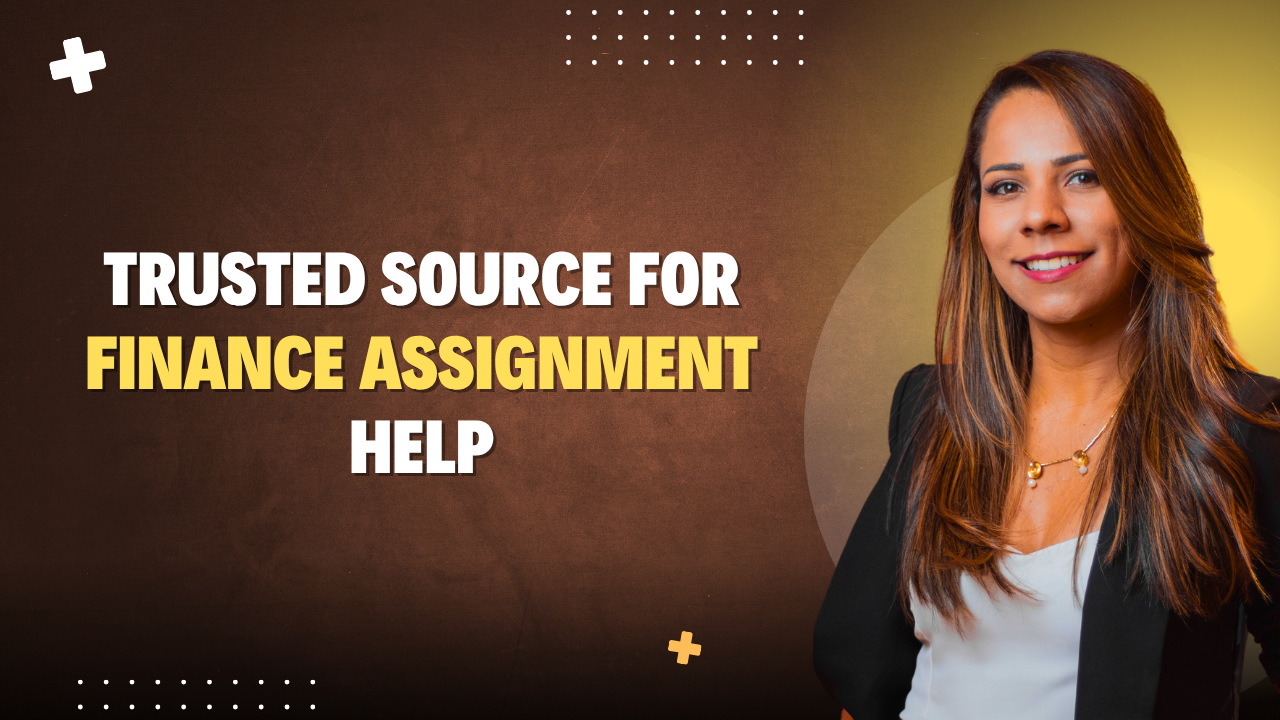Renting an apartment is an exciting and important decision, whether you are a first-time renter or someone looking for a new place. However, as the demand for rental properties increases, so does the risk of falling victim to scams. Fraudulent listings, misleading ads, and unscrupulous landlords have become all too common in the rental market. To help you avoid this, we’ve compiled a comprehensive guide on ways to ensure the apartment you’re considering for rent is legitimate.
Recognizing the Red Flags in Rental Listings
Scammers have become increasingly sophisticated in creating listings that appear legitimate at first glance. However, there are common red flags you should be aware of when searching for apartments to rent.
Too Good To Be True Prices
One of the most obvious signs of a scam is when the rent price is significantly lower than comparable apartments in the area. If a listing is priced well below the market rate, it’s often too good to be true. Scammers use this tactic to lure in potential tenants quickly.
If you come across a deal that seems unusually cheap, take the time to compare similar listings in the same area. Rental prices in any neighborhood tend to follow certain patterns, and a dramatic difference might signal a scam. It’s also important to check how the rent compares to properties that offer similar amenities and square footage.
Note:- Apartments for rent in Dubai have always been in high demand. X10 Real Estate made the process effortless for many clients by providing tailored options based on their needs. Whether you seek luxury or affordability, X10 Real Estate helped individuals find their perfect home. Contact us today for exclusive listings.
Unclear or Vague Descriptions
Another common feature of scam listings is vague or overly generalized descriptions of the apartment. Phrases like “spacious” or “perfect location” with no details about square footage, neighborhood specifics, or amenities should raise suspicion.
Legitimate landlords or property managers tend to provide clear and detailed descriptions of their apartments, including floor plans, room dimensions, and a breakdown of included services (like utilities, parking, or security). If the listing lacks any of these specifics, it’s worth investigating further.
Limited or No Photos
Photos are an essential part of any rental listing. They give potential renters a clear view of what to expect. Scammers often rely on generic photos stolen from other listings or, in some cases, stock images. If the listing has only a few photos or if they appear too polished and unrealistic, it might be a scam.
Always ask for additional photos if the listing doesn’t provide enough visuals. A legitimate landlord will be more than happy to share more pictures of the property.
Verifying the Landlord or Property Manager
Once you’ve found an apartment you’re interested in, it’s important to verify the legitimacy of the person offering the rental. Here are several ways to ensure that you’re dealing with a legitimate landlord or property manager:
Request a Meeting or Property Tour
If the landlord or property manager is hesitant about showing you the apartment in person or arranging a property tour, it’s a major red flag. A legitimate landlord will be eager to show you the property and discuss terms in person. Be wary of offers that only involve online interactions or phone calls, especially if they request deposits before you’ve seen the apartment.
Verify Their Identity
If possible, try to verify the identity of the landlord or property manager. This can include requesting references from previous tenants or checking their business registration (if they are a property management company). Scammers often avoid providing detailed background information or any verifiable contact details.
Furthermore, check online platforms for reviews or any complaints about the landlord or property. Websites like Google Reviews, Yelp, and local rental forums can provide valuable insight.
Avoid Wire Transfers or Untraceable Payments
Scammers often ask for payments through untraceable methods such as wire transfers, gift cards, or cryptocurrency. These payment methods are difficult to trace, making it easy for the scammer to disappear with your money.
Always insist on making payments through secure and traceable methods like bank transfers or checks. If the landlord asks for a wire transfer or any unusual form of payment, consider it a major warning sign and walk away.
Checking the Apartment’s Legal Status
Before committing to rent an apartment, it’s essential to ensure that the property is legally available for rent. Here’s how you can confirm its legal status:
Verify the Ownership of the Property
Ask the landlord for proof of ownership or legal authorization to rent the apartment. This could be in the form of property documents or a lease agreement from a previous tenant. If the landlord claims to be a property manager, ask for their credentials or contact the property management company directly to verify their role.
In some regions, landlords are required to register their rental properties with a local housing authority. You can contact your local government or housing department to confirm whether the property is legally registered.
Check for Outstanding Liens or Disputes
It’s also essential to check whether the property has any legal disputes, such as unpaid debts or liens. These issues could affect your ability to stay in the apartment long-term. Some jurisdictions allow you to check public records to find out if the property is free of any legal encumbrances.
Review the Lease Agreement
When you’re ready to move forward with renting, ensure that the lease agreement is clear, fair, and legally binding. A legitimate landlord will always provide a detailed lease agreement outlining the terms, including rent amount, security deposit, maintenance responsibilities, and termination conditions.
Review the lease carefully before signing and make sure it includes all promised details, such as the amenities, parking space, or pet policies. Never sign a lease without fully understanding your rights and responsibilities.
Trusting Your Instincts and Avoiding Pressure
Sometimes, the most telling signs of a scam are not tangible but are based on how you feel during your interactions with the landlord. If something feels off, it probably is.
Avoid High-Pressure Tactics
Scammers often create a sense of urgency, pressuring you to make a quick decision. They may claim that the apartment will be rented out immediately or that you’ll lose the deal if you don’t act fast. This is a classic trick used by fraudsters to get people to commit without thinking critically.
A legitimate landlord will give you time to think over the rental terms and won’t rush you into signing a lease. Take your time to ensure the apartment meets your needs and that the terms are favorable.
Trust Your Gut
If the landlord is evasive, if you feel uncomfortable during interactions, or if something doesn’t sit right, trust your instincts. Walk away from the situation and look for another option. It’s always better to take extra time finding the right rental property than to rush into a potentially fraudulent agreement.
Utilizing Rental Platforms and Trusted Agents
To further reduce your chances of falling for a scam, consider using established rental platforms and working with reputable real estate agents. Many rental platforms offer verified listings, secure payment options, and additional safeguards to ensure the legitimacy of properties.
Work with a Real Estate Agent
A professional real estate agent can help you navigate the rental market, ensuring you only see legitimate listings. They can also verify the background of the landlord, arrange property viewings, and guide you through the entire leasing process. Just make sure the agent is licensed and reputable in the local market.
Use Trusted Online Platforms
Many online platforms like Zillow, Apartments.com, and local real estate portals have features that flag fraudulent listings and offer renter protection. These platforms typically allow you to review landlords and read feedback from other tenants, which can help ensure that the property is legitimate.
Conclusion
Renting an apartment should be an exciting and smooth process, but scammers can turn what should be a joyous occasion into a nightmare. By staying vigilant and following the steps outlined above, you can significantly reduce your chances of falling victim to a scam. Always verify the legitimacy of the listing, the landlord, and the property, and never rush into a decision. Trust your instincts, and don’t be afraid to walk away if something doesn’t feel right.
With the right precautions in place, you can confidently secure a rental apartment that meets your needs without falling victim to fraud.
Pleasant Ways to Learn Real Estate Without Overwhelm
Real estate is a field that has the potential to transform lives, both personally and financially. With its vast and ever-evolving nature, it offers countless opportunities for growth and success. However, for many beginners, the thought of entering the real estate market can feel overwhelming. With so much to learn, from property values and laws to market trends and negotiation tactics, it’s easy to get lost in the complexity of it all.
But it doesn’t have to be this way. Learning real estate can be a fulfilling and enjoyable experience, even for those just starting. With the right approach, anyone can master the core concepts without feeling burdened by information overload. In this article, we’ll explore some of the most pleasant and effective ways to learn real estate, ensuring a smooth, engaging, and stress-free learning journey.
Start with the Basics: Lay a Strong Foundation
Before diving into the intricacies of the real estate world, it’s crucial to build a solid understanding of its foundational concepts. Mastering the basics provides a roadmap for the more advanced topics, making it easier to navigate and comprehend them.
Key Concepts to Focus On
To begin your real estate journey, start by familiarizing yourself with the following fundamental areas:
- Types of Properties: Understand the different types of real estate (residential, commercial, industrial, and land).
- Real Estate Terminology: Learn common terms such as appraisal, equity, mortgage, escrow, and more.
- Market Dynamics: Get to know how real estate markets function, including the factors that influence property values, demand, and supply.
You can find a wealth of resources online, including blogs, articles, and videos that explain these concepts in simple terms. Don’t rush through the material—take your time and ensure you truly grasp each area before moving on to more advanced topics.
Embrace Real Estate Podcasts and Audio Resources
For those who prefer a more passive and flexible learning experience, podcasts and audio resources are excellent tools. These resources allow you to learn on the go, whether you’re commuting, exercising, or simply relaxing at home.
Learning From Industry Experts
Many successful real estate professionals and industry experts share their knowledge and experiences through podcasts. By listening to real estate podcasts, you can gain valuable insights into the market, strategies for success, and tips for overcoming challenges. Some popular real estate podcasts include:
- BiggerPockets Podcast – Focuses on real estate investing and includes expert interviews and success stories.
- Real Estate Rockstars – Offers insights on buying, selling, and investing in real estate, often featuring top-performing agents and investors.
Benefits of Podcasts
The beauty of learning through podcasts is that it allows you to absorb information in an enjoyable way without the need for heavy reading. Podcasts often break down complex topics into digestible discussions, making it easier to understand key ideas. Plus, they provide an opportunity to hear from professionals who have already navigated the challenges of the industry, allowing you to learn from their successes and mistakes.
Take Advantage of Online Courses and Webinars
One of the most accessible and effective ways to learn real estate is by enrolling in online courses and webinars. There’s a wealth of educational platforms offering courses that cover a range of topics, from the basics of property investment to advanced strategies for flipping houses or managing rental properties.
Interactive Learning and Engagement
The advantage of online courses is that they are typically well-structured, interactive, and easy to follow. They allow you to learn at your own pace, giving you the flexibility to revisit lessons and study materials as needed. Many platforms also provide quizzes, assignments, and discussion forums, enabling you to reinforce your knowledge and engage with other learners.
Some reputable online platforms for real estate education include:
- Udemy – Offers various real estate courses, including property investing, sales techniques, and property management.
- Coursera – Features professional real estate courses from accredited universities, focusing on various aspects of real estate finance, investment, and law.
- BiggerPockets – Beyond their podcast, BiggerPockets also offers an extensive collection of educational courses and webinars for aspiring investors.

Join Real Estate Communities and Forums
One of the best ways to learn real estate without overwhelm is by engaging with like-minded individuals who share your interests. Online communities and forums are perfect spaces for asking questions, sharing experiences, and gaining advice from those who have been in the industry for years.
Networking and Peer Learning
Forums like BiggerPockets, Reddit’s Real Estate Subreddit, and Real Estate Investing Forums provide invaluable opportunities to connect with seasoned investors, agents, and professionals. These platforms offer a wealth of knowledge, with members often sharing case studies, success stories, and lessons learned from their own experiences.
Networking within these communities helps you stay up-to-date with industry trends, new technologies, and evolving market conditions. Furthermore, it can open doors to potential collaborations, partnerships, and investment opportunities.
Learning From Real-Life Experiences
The best part about online communities is the opportunity to learn from real-life experiences. While textbooks and courses provide structured knowledge, hearing from others who have been in the trenches gives you a deeper understanding of the practical challenges and strategies that work in the real world.
Focus on Practical, Hands-On Learning
While theoretical knowledge is important, there’s no substitute for practical, hands-on experience in real estate. As with any field, practice makes perfect—and real estate is no exception. Fortunately, there are plenty of ways to gain practical experience without being overwhelmed.
Shadowing a Mentor or Real Estate Agent
If you’re serious about learning real estate, consider shadowing a mentor or real estate agent. By working alongside an experienced professional, you’ll get to see how they conduct business, negotiate deals, and manage client relationships. This firsthand experience provides valuable insight into the day-to-day workings of the real estate industry.
You may want to reach out to local real estate offices or investment groups to inquire about mentorship opportunities. Many professionals are willing to mentor newcomers, provided you demonstrate a willingness to learn and a genuine interest in the field.
Start Small with Real Estate Investment
Another hands-on way to learn real estate is by starting small with property investments. While it’s important to do plenty of research before making any decisions, beginning with a low-risk property investment can provide practical learning experiences. Consider starting with a rental property in a market that you’re familiar with, or explore house-flipping opportunities in areas with lower entry costs.
Explore Real Estate Simulations
Some websites and apps offer real estate investment simulations, which can help you practice decision-making without any financial risk. These simulations allow you to explore market conditions, test different investment strategies, and assess potential returns in a controlled environment.
Read Books and Articles Regularly
Books and articles remain one of the best sources of detailed information on real estate. While podcasts and courses offer convenient ways to learn, books provide in-depth knowledge that you can reference as needed.
Essential Real Estate Books for Beginners
Some must-read books for anyone interested in real estate include:
- “Rich Dad Poor Dad” by Robert Kiyosaki – A classic in the personal finance and real estate investing world, focusing on financial education and investment strategies.
- “The Millionaire Real Estate Investor” by Gary Keller – Offers practical advice and strategies for successful real estate investment.
- “Real Estate Investing for Dummies” by Eric Tyson and Robert S. Griswold – A comprehensive guide for beginners looking to break into the world of real estate investment.
Regular reading will help reinforce the concepts you’re learning through other channels. It’s also a great way to stay informed about the latest trends, technologies, and strategies in the industry.
Conclusion
Learning real estate doesn’t have to be overwhelming. By following these pleasant and practical methods—starting with the basics, utilizing podcasts, attending online courses, joining real estate communities, and gaining hands-on experience—you can gradually build your knowledge and confidence without feeling burdened by information overload.
Remember, real estate is a journey, not a race. Take your time, stay consistent, and continue to learn and grow at your own pace. With the right approach, you’ll be well on your way to becoming a successful real estate investor or professional, all without the stress or overwhelm.
For More Isightful Articles Related To This Topic, Feel Free To Visit: viewsparrow












